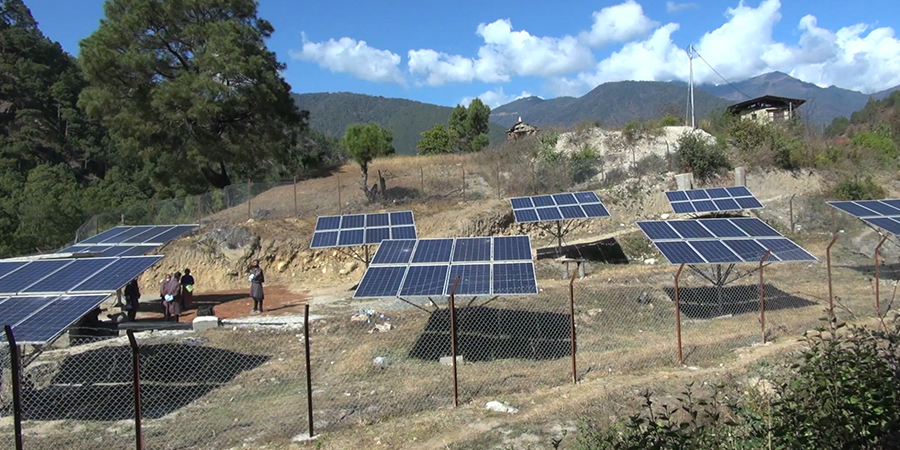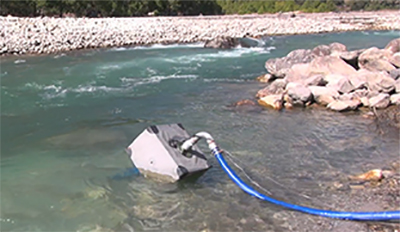
The farmers of Khawajara village in Tsephu-Khawakha Chiwog of Toewang Gewog in Punakha will now be able to cultivate crops in all their fields year-round with sufficient irrigation water. They finally received a solar water pump after struggling for more than a decade without enough irrigation water. The farmers are now looking forward to increasing agricultural production.
Some farmers of Khawajara had to leave their fields fallow for the past few years due to a shortage of irrigation water. They had to share irrigation water from a small water channel that draws water from Tsephu.
The farmers say they struggled to produce enough crops for self-consumption. They said had there been enough irrigation water, they could have cultivated crops on the fallow land without having to buy vegetables from the market. However, things are about to change for the good.
With the Solar Water Pump Project ensuring sufficient irrigation water, the farmers are looking forward to growing crops throughout the year hereafter.
 The Solar Water Pump is established near the Phochhu River. It draws water from the river by solar energy in a 200mm size water pipe.
The Solar Water Pump is established near the Phochhu River. It draws water from the river by solar energy in a 200mm size water pipe.
The solar-powered pump then pumps the water about 560 meters upward from the pump-house towards the existing irrigation water channel above the village. The water is then distributed in the fields.
The farmers of Khawajara have already started works to cultivate chilli. They plan to use the solar pump this summer.
“We are expecting to produce more vegetables hereafter. It has been around four years that the yields of our paddy have been declined. But now, we are expecting to increase the yield by twice compared to the past years,” said Tandin, a farmer from Khawajara.
“We can assure that we will be able to be self-sufficient if we get irrigation water like this. We can start working in our fields immediately by supplying water from the pump house whenever we need it,” said Drali, another farmer.
Kencho Wangmo, another farmer said they will now be able to transplant paddy on time.
“We also expect to improve the yield of our crops. And I am sure that it would benefit us to carry out winter vegetable works as well.”
60 solar panels are producing 20 kW of energy. As the solar pump is dependent on weather favourability, the farmers can also use electricity as an alternative to operating the pump. However, they are worried about the electricity charges.
“Solar energy is weather dependent equipment and we learned that it cannot function if the weather condition is not good. So, we can see some problems. Likewise, we are worried about electricity charges in case we have to operate it using electricity,” said Drali.
The Gewog Agriculture Extension office said this will not be an issue as a Water User Group was formed through which funds will be collected annually from the users to pay for the electricity charges of the pump. The project will be able to supply irrigation water to around 50 acres of land in the village.
Bajo Agriculture Research and Development Center established the Solar Water Pump Project last year with technical support from the United Nations Development Programme funded by Green Climate Fund Project.
Changa Dorji, Punakha
Edited by Phub Gyem









